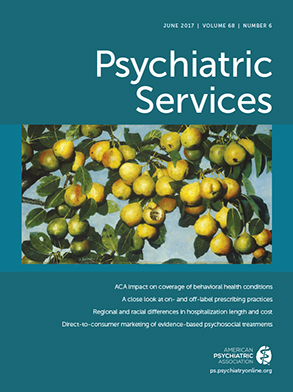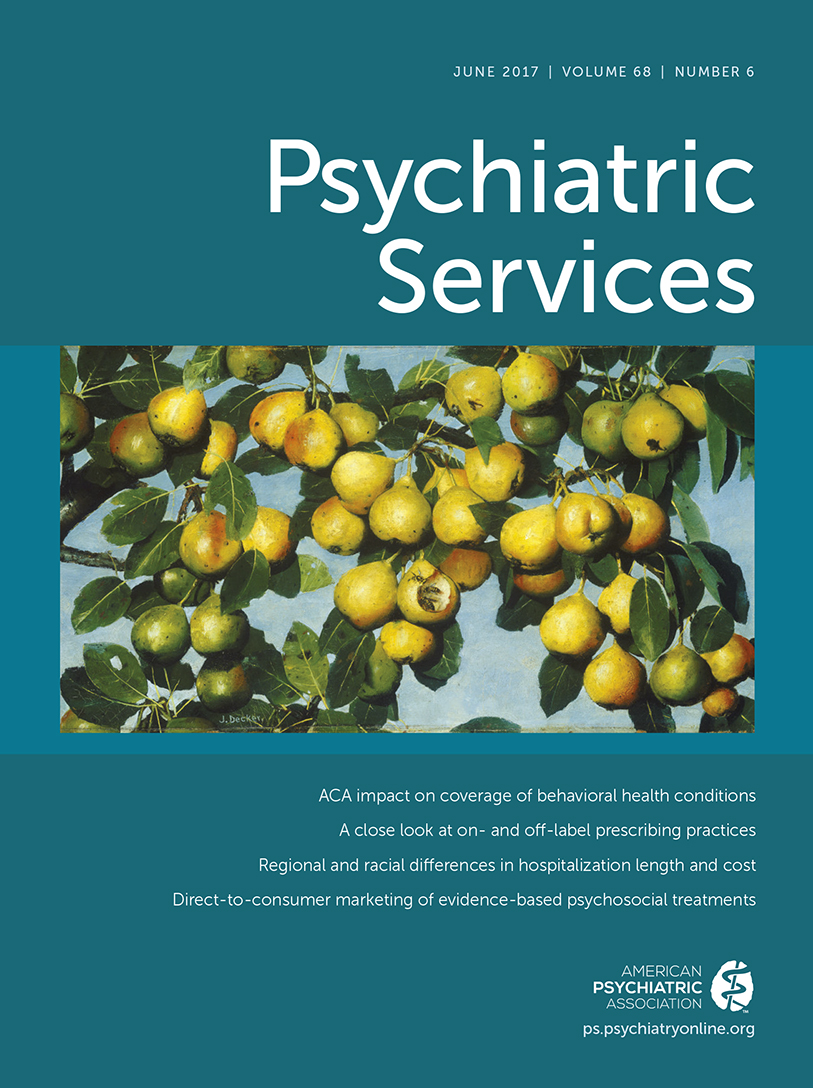TO THE EDITOR: The quality of inpatient psychiatric care remains underresearched, especially from the perspective of the consumer. To our knowledge, whether quality of episodic inpatient psychiatric care predicts consumers’ trust in the mental health care system has not been assessed (
1). In an exploratory survey-based study, we evaluated the association between consumer-rated quality of inpatient psychiatric care and trust in the mental health system, independent of factors such as diagnostic history and admission status (voluntary versus involuntary), hypothesizing that quality of inpatient care is positively associated with trust in the system.
Participants (N=52) were conveniently recruited from 15 states through social media, e-mail Listservs, and flyers. The mean±SD age was 44.22±13.1, 75% (N=39) were female, 60% (N=31) had a four-year college degree, 50% (N=26) had private insurance (50% public), 85% (N=44) were white, and 50% (N=26) were involuntarily admitted.
Participants responded to an online survey that used the Combined Assessment of Psychiatric Environments measure (
2) to assess experienced quality of inpatient psychiatric care, trust (versus distrust) in the mental health care system, diagnostic history (versus no history) of psychotic features, admission status (voluntary versus involuntary), time since hospitalization (zero or one year, two to four years or five or more years), education (college versus no college), race (white or nonwhite), number of hospitalizations (one, two to four, five to ten, or more than ten), and type of insurance coverage at time of hospitalization (public, private, or no insurance). After running preliminary correlations and t tests, we used multiple logistic regression, with trust in the mental health system as the dependent variable and experienced quality of inpatient psychiatric care as the primary independent variable.
Experienced quality of care, on a scale ranging from –12 to 72, was higher among those who trusted the mental health system (33.81±4.29) compared with those who did not trust it (12.00±3.51; t=−3.93, df=50, p<.001). With analyses accounting for individual-level covariates, experienced quality of care (odds ratio [OR]=1.08, 95% confidence interval [CI]=1.01–1.14) and diagnosis (OR=.02, CI=.001–.42) were independently related to trust in the mental health system. Every one-unit increase in consumer-rated quality was associated with 1.08 times greater odds of trust in the mental health system. Individuals with a diagnostic history of psychotic features had 50 times greater odds of not trusting the mental health system compared with individuals without such history.
In regard to the quality-trust relationship, consumers may not distinguish between quality and trust or consumers may generalize their experience and observation to the larger mental health care context. Although the effect of diagnosis might be due to condition-based paranoia and suspicion, individuals with a diagnosis with psychotic features might be treated differently within the mental health system, and perhaps in a less positive way, compared with those without such diagnoses.
Given the cross-sectional design, directionality could not be determined with confidence. The convenience sample could have led to selection bias and limited generalizability of the findings. Future work should more rigorously assess these relationships and explore moderation by patient characteristics and type of treatment facility.
Although this study did not definitively illuminate specific areas for action, it laid important groundwork for more rigorous research into understanding the mechanisms underpinning the relationship between consumers’ experience within inpatient psychiatric settings and their trust of, and future engagement with, the mental health system.

